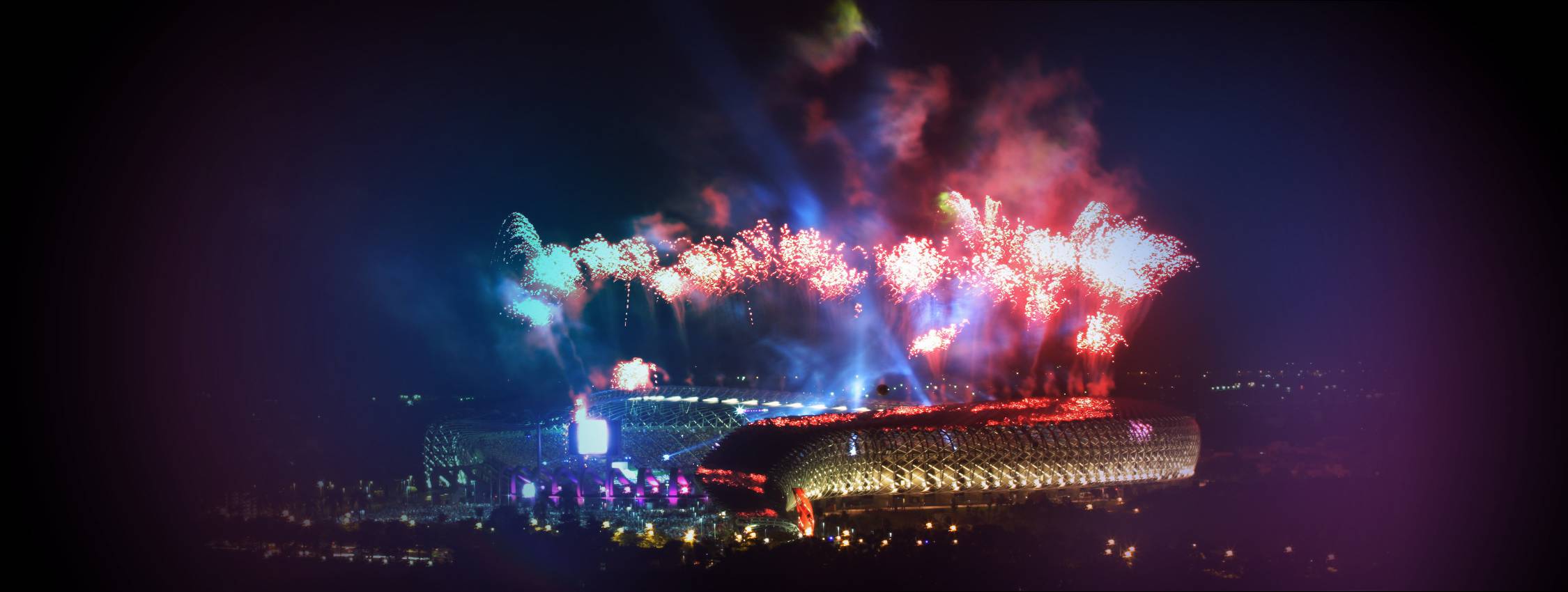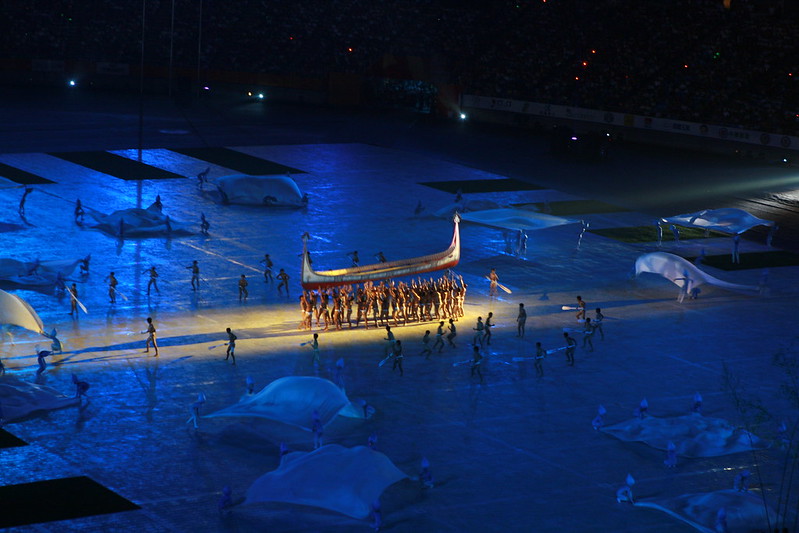The Hospitality Games
After The World Games 2001 in Akita-Japan, in 2009 the event was staged for the second time in Asia. Kaohsiung, the Host City for TWG 2009, one of the largest ports in the world, is situated in the southeast of Chinese Taipei. When asked about the special character of the TWG 2009 in Kaohsiung, the answer is: The hospitality of the people, and in particular the helpfulness and enthusiasm of the more than 4,400 volunteers, gave the event a special spirit. The Games were held 16-26 July.
The German bowler Achim Grabowski described it at the Athletes Party of TWG 2009 as follows: "Duisburg 2005 was already great. But the people here give me the feeling of being a sport superstar. That's unique." During the closing ceremony, IWGA President Ron Froehlich honoured the Host City as the organizers of "the best World Games ever".
Facts and figures: 26 sports, with a total of 146 medal events, were on the competition programme. There were 5 invitational sports, including Beach Handball, which after 2009 is included on the competition programme. The TWG 2009 had no new sport on the programme.
During the ten days of the event, 2305 athletes in the competition program and 603 athletes in invitational sports program competed for the medals. They came from 84 nations (80 in competition sports and 4 in invitational sports) . Taking also the officials (such as judges and referees) into account, then the number of the nations is 103.
Like in 2001 in Akita-Japan and 2005 in Duisburg-Germany, Russia won the medal tally, this time with 18 gold medals. Second place went to Italy (16 gold medals) and third place to the People's Republic of China (14 gold medals). Eugenia Kanaeva from Russia, the Olympic Champion (2008 and 2012) in Gymnastic-Rhythmic All Around, was the most successful athlete of TWG 2009 with four gold medals won in each of the four individual disciplines in Rhythmic Gymnastics.
The organizers used a total of 21 venues for the competition sports and two additional venues for the invitational sports. Only the main stadium with a capacity of 55,000 seats was newly built for The World Games, it was used for the opening and closing ceremonies, as well as for competitions in Flying Disc and Rugby. The opening ceremony in the National Stadium was performed by Chinese Taipei President Ma .
800 accredited media representatives from 28 nations reported on the World Games in Kaohsiung. The survey company Meltwater registered in July 2009 more than 11,000 press articles on The World Games. The host broadcaster PTS produced content for 200 broadcasting hours. The opening and closing ceremonies were watched by more than 13 million people.
A total of 283,151 tickets were sold by the organizers. It was the best result so far and exceeded the ticket sale of TWG 2005 Duisburg-Germany. For the opening ceremony 30,000 tickets were sold and 21,000 for the closing ceremony and thousands of people followed the celebrations on a big screen.
Dance Sport, which is very popular in Asia, had on both days of the competition over 18,000 spectators . Almost 40,000 spectators watched the Gymnastics competitions in the Kaohsiung Arena and the Cultural Centre . The Flying Disc matches were attended by over 46,000 spectators. More than 15,000 spectators attended the opening match between USA and Chinese Taipei on the first day of the competition. Never before had there been so many spectators at a Flying Disc competition.
The World Games Plaza, in the area near the Harbour, was extremely popular. Almost 1.25 million visitors came to attend the evening's cultural programme with additional presentations by sponsors and sports associations. Every night the event on the plaza ended with an amazing fireworks show.
When the IWGA in 2003 awarded The World Games 2009 to Kaohsiung, it was the first time in 60 years that Chinese Taipei was entrusted to host a large multi-sport event. The Organizing Committee with President Chu Chen, Mayor of Kaohsiung, Managing Director Shyh-Feng Liu and CEO Cho-Chuan (Emily) Hsu greatly assisted to the success of the event.
The cost of The World Games 2009 was $93 million, including $18 million for the renovation of existing venues. The total costs remained below the organizing committee's budget estimate.
Following the example of Akita, Kaohsiung also selected the mascot in the form of twins . The mascots, representing a girl and a boy, were also used in the pictograms of the participating sports. Gao Mei and Syong Ge are named after the pronounciation of name of the Host City, Kaohsiung (Koah=”Gao” suing=”Syong”). They are intended to personify the City as "a city of the sea and the sun" and to symbolize the "friendliness and hospitality" of the city's residents.
As part of the legacy of the games, the logo of The World Games 2009 became the official city logo. After the World Games 2009, Kaohsiung hosted several other major sporting events, such as competitions from Sumo and Dance Sport.













